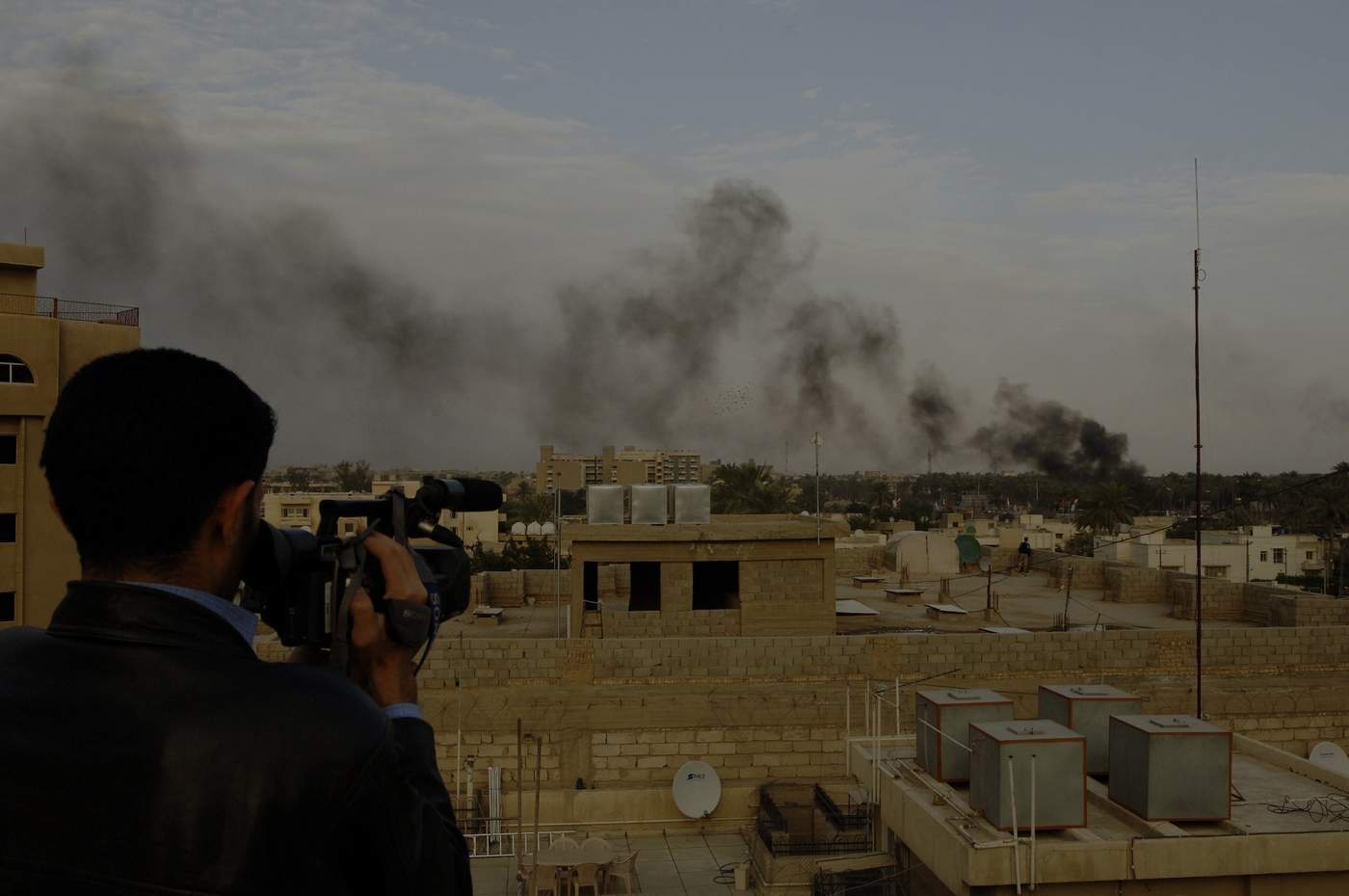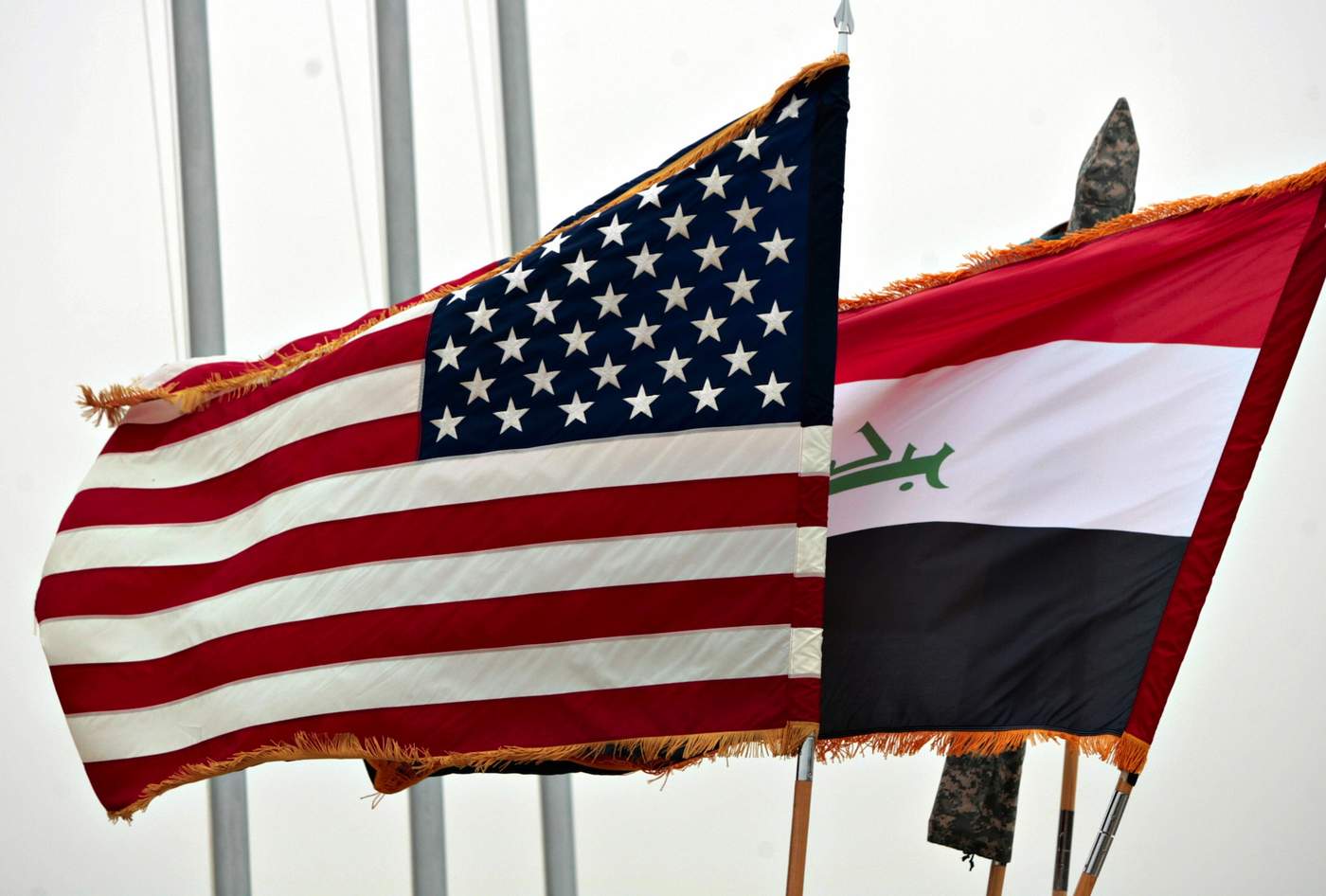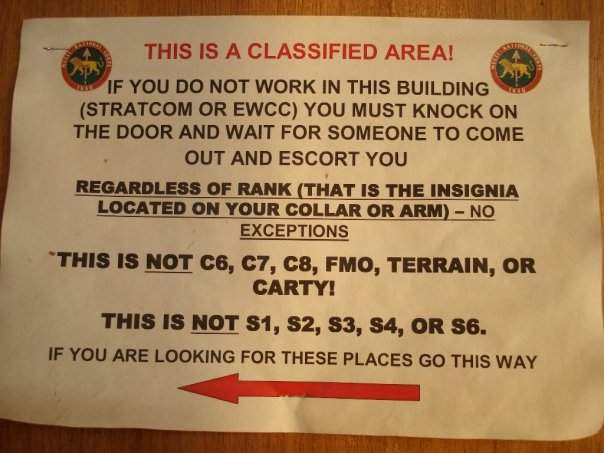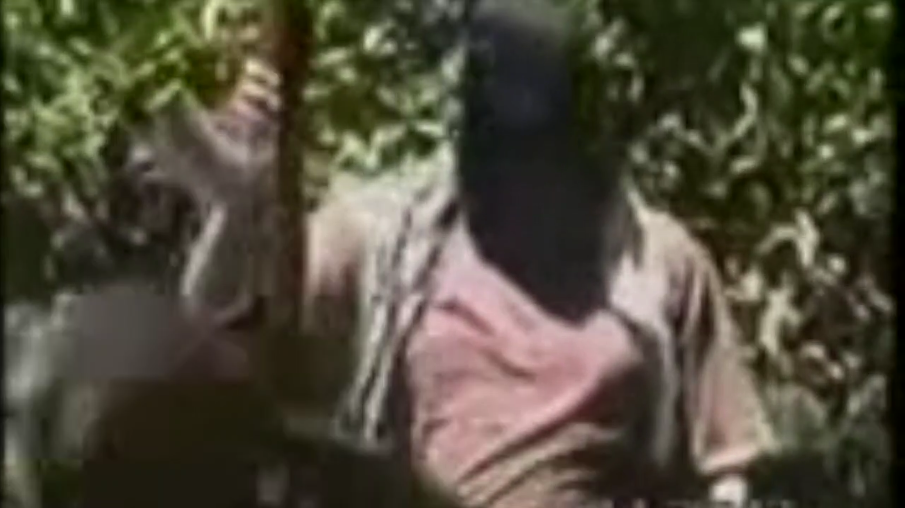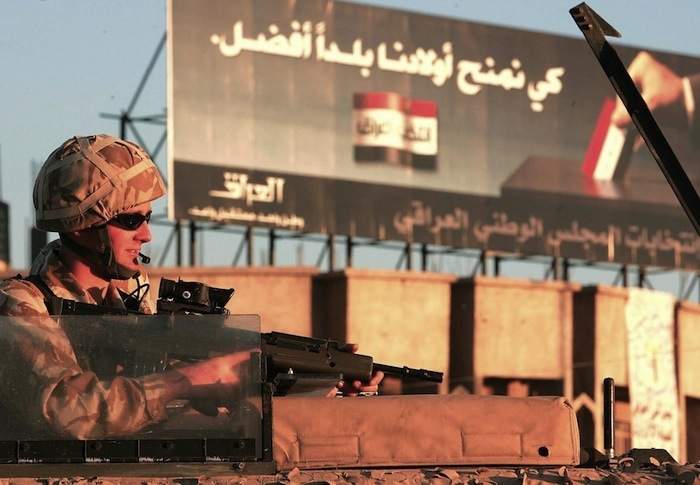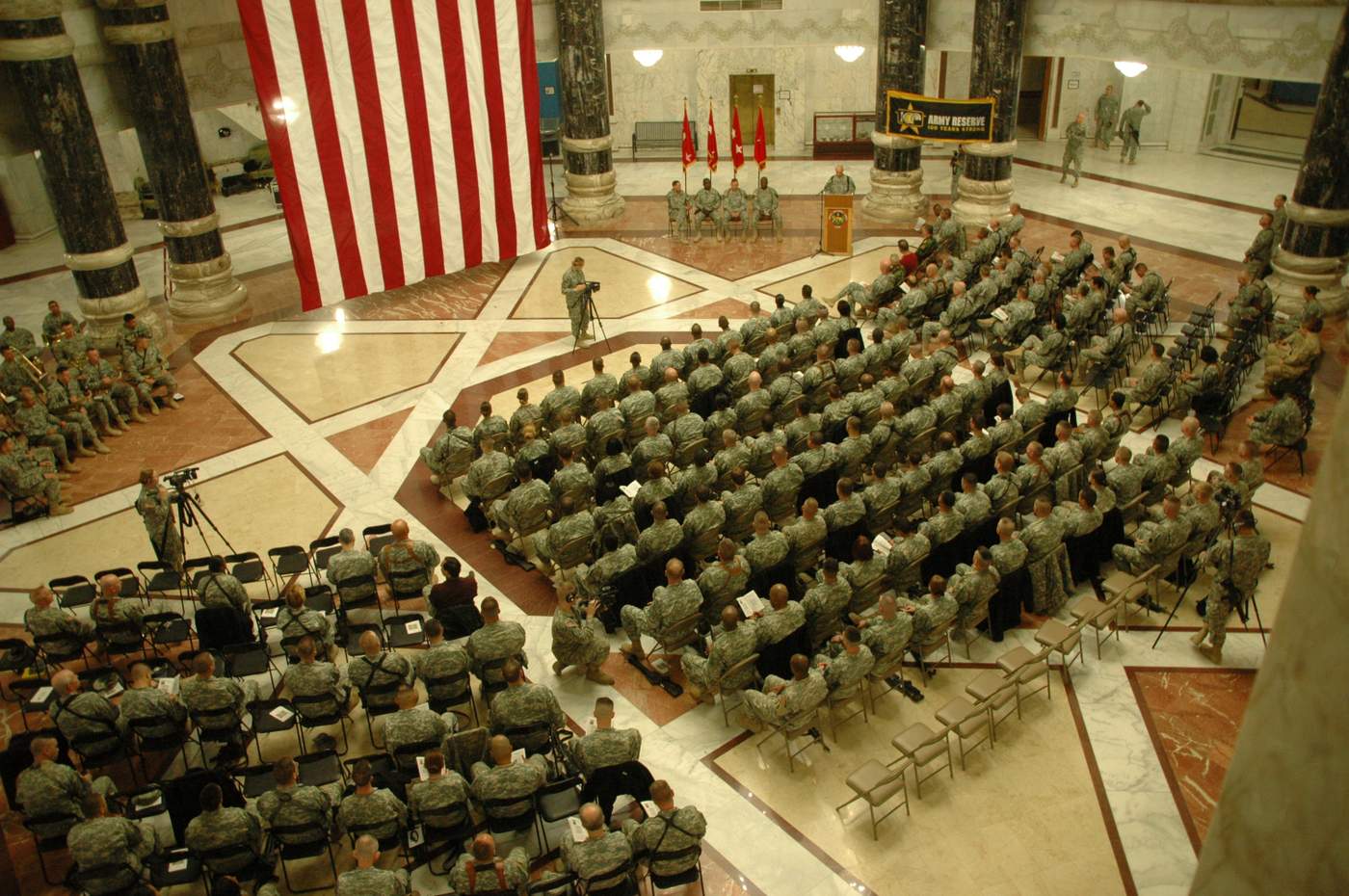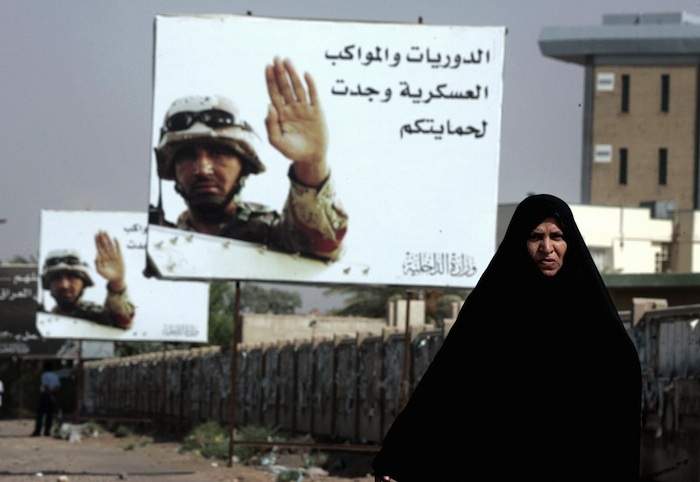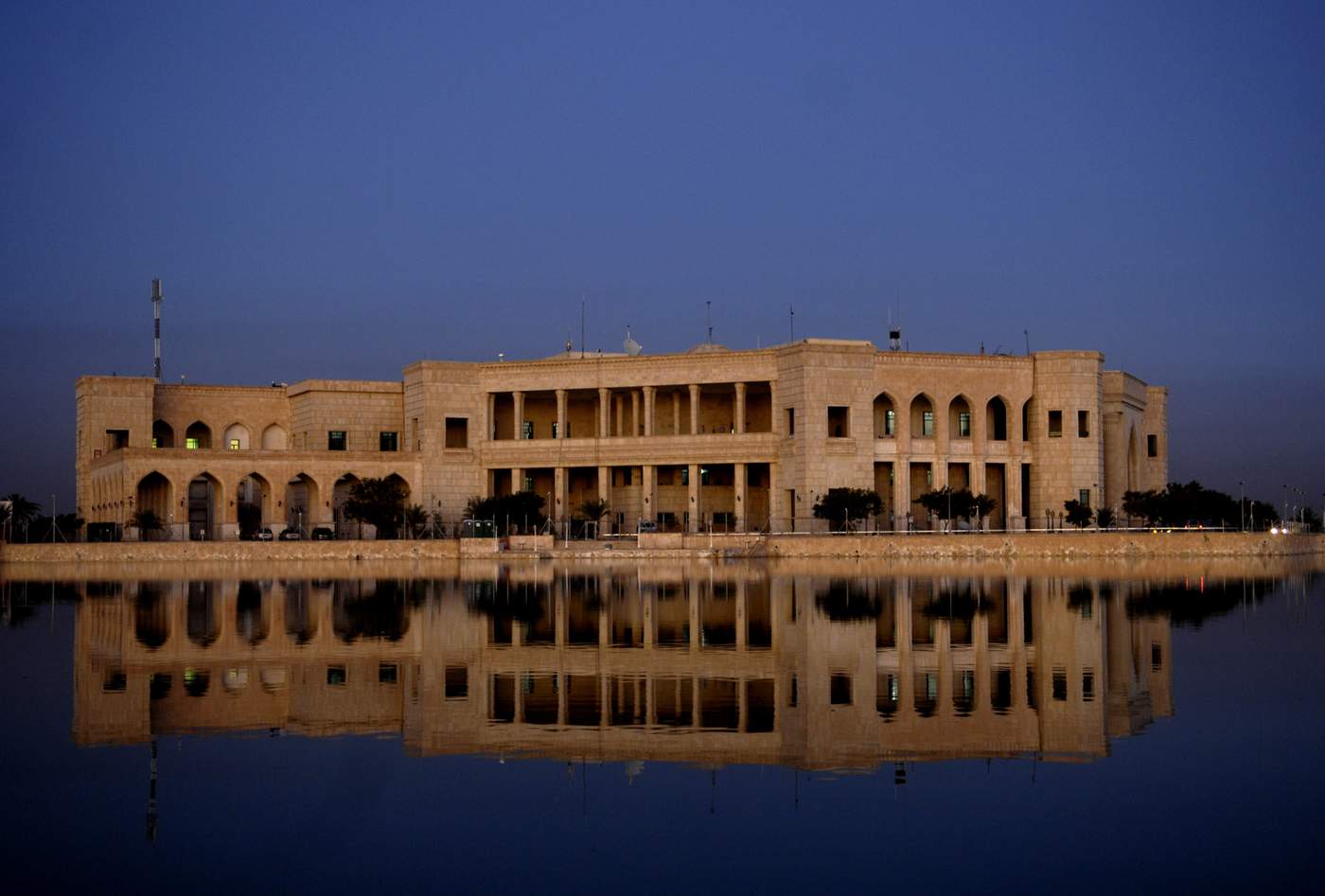The Pentagon gave a controversial UK PR firm over half a billion dollars to run a top secret propaganda programme in Iraq, the Bureau of Investigative Journalism can reveal.
Bell Pottinger’s output included short TV segments made in the style of Arabic news networks and fake insurgent videos which could be used to track the people who watched them, according to a former employee.
The agency’s staff worked alongside high-ranking US military officers in their Baghdad Camp Victory headquarters as the insurgency raged outside.
Bell Pottinger's former chairman Lord Tim Bell confirmed to the Sunday Times, which worked with the Bureau on this story, that his firm had worked on a “covert” military operation “covered by various secrecy agreements.”
Bell Pottinger reported to the Pentagon, the CIA and the National Security Council on its work in Iraq, he said.
Bell, one of Britain’s most successful public relations executives, is credited with honing Margaret Thatcher’s steely image and helping the Conservative party win three elections. The agency he co-founded has had a roster of clients including repressive regimes and Asma al-Assad, the wife of the Syrian president.
In the first media interview any Bell Pottinger employee has given about the work for the US military in Iraq, video editor Martin Wells – who no longer works for the company – told the Bureau his time in Camp Victory was "shocking, eye-opening, life-changing.”
The firm’s output was signed off by former General David Petraeus – then commander of the coalition forces in Iraq – and on occasion by the White House, Wells said.

Martin Wells worked for Bell Pottinger in Iraq during 2006-8
Bell Pottinger produced reams of material for the Pentagon, some of it going far beyond standard communications work.
The Bureau traced the firm's Iraq work through US army contracting censuses, federal procurement transaction records and reports by the Department of Defense (DoD) Inspector General, as well as Bell Pottinger's corporate filings and specialist publications on military propaganda. We interviewed half a dozen former officials and contractors involved in information operations in Iraq.
There were three types of media operations commonly used in Iraq at the time, said a military contractor familiar with Bell Pottinger’s work there.
“White is attributed, it says who produced it on the label,” the contractor said. “Grey is unattributed and black is falsely attributed. These types of black ops, used for tracking who is watching a certain thing, were a pretty standard part of the industry toolkit.”
Bell Pottinger changed ownership after a management buyout in 2012 and its current structure has no connections with the unit that operated in Iraq, which closed in 2011. It is understood the key people who worked in that unit deny any involvement with tracking software as described by Wells.
Bell Pottinger’s work in Iraq was a huge media operation which cost over a hundred million dollars a year on average. A document unearthed by the Bureau shows the company was employing almost 300 British and Iraqi staff at one point.
The London-based PR agency was brought into Iraq soon after the US invasion. In March 2004 it was tasked by the country’s temporary administration with the "promotion of democratic elections" – a "high-profile activity" which it trumpeted in its annual report.
The firm soon switched to less high-profile activities, however. The Bureau has identified transactions worth $540 million between the Pentagon and Bell Pottinger for information operations and psychological operations on a series of contracts issued from May 2007 to December 2011. A similar contract at around the same annual rate – $120 million – was in force in 2006, we have been told.
The bulk of the money was for costs such as production and distribution, Lord Bell told the Sunday Times, but the firm would have made around £15 million a year in fees.
Martin Wells, the ex-employee, told the Bureau he had no idea what he was getting into when he was interviewed for the Bell Pottinger job in May 2006.
He had been working as a freelance video editor and got a call from his agency suggesting he go to London for an interview for a potential new gig. “You’ll be doing new stuff that’ll be coming out of the Middle East,” he was told.
“I thought ‘That sounds interesting’,” Wells recalled. “So I go along and go into this building, get escorted up to the sixth floor in a lift, come out and there’s guards up there. I thought what on earth is going on here? And it turns out it was a Navy post, basically. So from what I could work out it was a media intelligence gathering unit.”
After a brief chat Wells asked when he would find out about the job, and was surprised by the response.
“You’ve already got it,” he was told. “We’ve already done our background checks into you.”
He would be flying out on Monday, Wells learned. It was Friday afternoon. He asked where he would be going and got a surprising answer: Baghdad.
“So I literally had 48 hours to gather everything I needed to live in a desert,” Wells said.
The CDs were set up to use Real Player, a popular media streaming application which connects to the internet to run. Wells explained how the team embedded a code into the CDs which linked to a Google Analytics account, giving a list of IP addresses where the CDs had been played.
The tracking account had a very restricted circulation list, according to Wells: the data went to him, a senior member of the Bell Pottinger management team, and one of the US military commanders.
Wells explained their intelligence value. “If one is looked at in the middle of Baghdad…you know there’s a hit there," he said. "If one, 48 hours or a week later shows up in another part of the world, then that’s the more interesting one, and that’s what they’re looking for more, because that gives you a trail.”
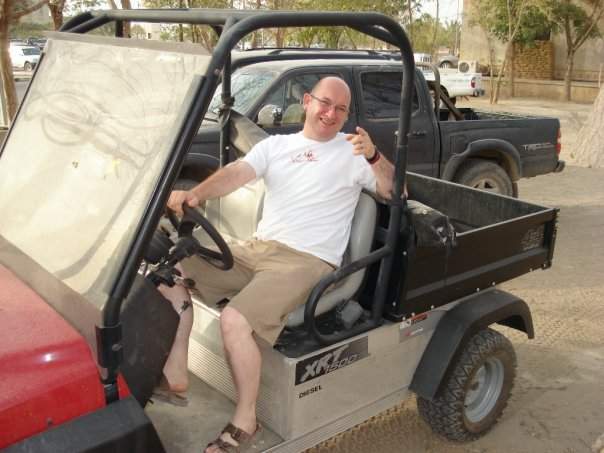
Martin Wells inside Camp Victory
The CDs turned up in some interesting places, Wells recalled, including Iran, Syria, and even America.
"I would do a print-out for the day and, if anything interesting popped up, hand it over to the bosses and then it would be dealt with from there,” he said.
The Pentagon confirmed that Bell Pottinger did work for them as a contractor in Iraq under the Information Operations Task Force (IOTF), producing some material that was openly sourced to coalition forces, and some which was not. They insisted that all material put out by IOTF was "truthful".
IOTF was not the only mission Bell Pottinger worked on however. Wells said some Bell Pottinger work was carried out under the Joint Psychological Operations Task Force (JPOTF), which a US defence official confirmed.
The official said he could not comment in detail on JPOTF activities, adding: “We do not discuss intelligence gathering methods for operations past and present.”
Lord Bell, who stood down as chairman of Bell Pottinger earlier this year, told the Sunday Times that the deployment of tracking devices described by Wells was “perfectly possible”, but he was personally unaware of it.
Bell Pottinger’s output was signed off by the commander of coalition forces in Iraq, according to Wells. “We’d get the two colonels in to look at the things we’d done that day, they’d be fine with it, it would then go to General Petraeus," he said.
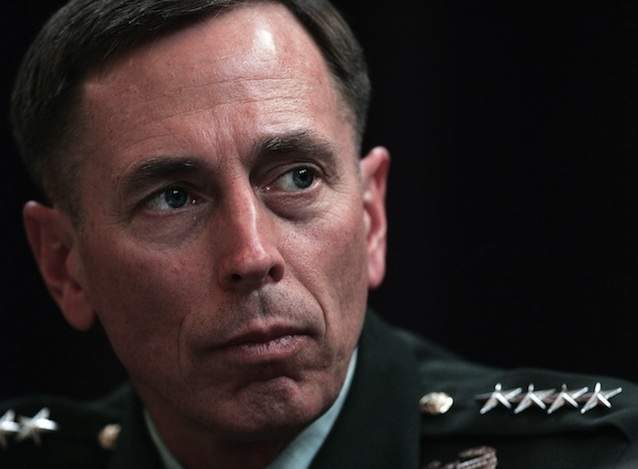
General Petraeus signed off on Bell Pottinger's material, says Wells.
Photo by Cate Gillon/Getty Images
Some of the projects went even higher up the chain of command. “If [Petraeus] couldn’t sign off on it, it would go on up the line to the White House, and it was signed off up there, and the answer would come back down the line’."
Petraeus went on to become director of the CIA in 2011 before resigning in the wake of an affair with a journalist.
Watch the Bureau's interview with Martin Wells below:
Wells left Iraq after less than two years, having had enough of the stress of working in a war zone and having to watch graphic videos of atrocities day after day.
Looking back at his time creating propaganda for the US military, Wells is ambivalent. The aim of Bell Pottinger’s work in Iraq was to highlight al Qaeda’s senseless violence, he said – publicity which at the time he thought must be doing some good. “But then, somewhere in my conscience I wondered whether this was the right thing to do,” he added.
Lord Bell told the Sunday Times he was “proud” of Bell Pottinger’s work in Iraq. “We did a lot to help resolve the situation,” he said. “Not enough. We did not stop the mess which emerged, but it was part of the American propaganda machinery.”
Whether the material achieved its goals, no one would ever really know, said Wells. “I mean if you look at the situation now, it wouldn’t appear to have worked. But at the time, who knows, if it saved one life it [was] a good thing to do.”
This investigation was published in collaboration with The Sunday Times, and a version was also published by The Daily Beast. It is part of a series by the Bureau looking at the use of military contractors worldwide. If you have any stories or tips please email croftonblack@tbij.com or abigailfielding-smith@tbij.com
Follow Crofton Black on Twitter: @cr0ft0n
Follow Abigail Fielding-Smith on Twitter: @AbbieFS
Title image of cameraman filming a 2007 car bomb attack in Baghdad by Scott Peterson/Getty Images
Background image of soldiers praying in a circle at Camp Victory in 2007 by Nikola Solic/Reuters

